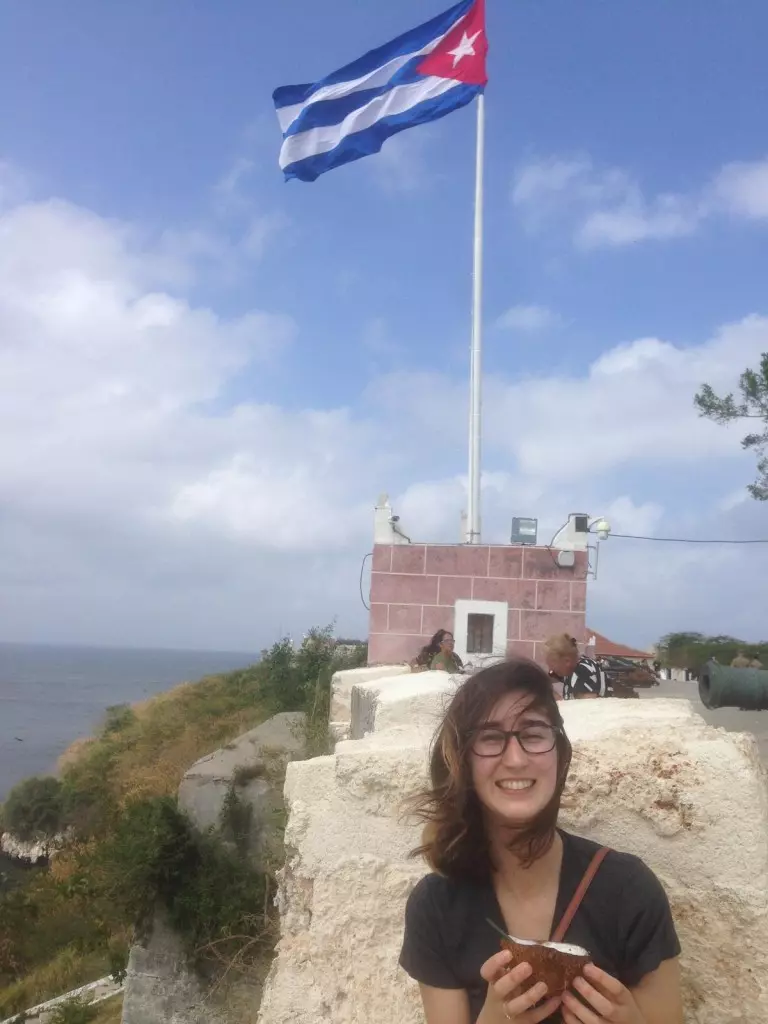Beyond Fresa Y Chocolate: LGBTQ+ Culture in Havana


The Revolution in 1959 brought sweeping changes to Cuba. Most notably, the nationalization of the economy, free education and healthcare, and the literacy campaign. However, the egalitarian Cuban dream did not actually belong to everyone, and one such marginalized group was the LGBTQ+ community.
Sodomy was outlawed and openly gay individuals were interned in concentration camps to keep them separate from the rest of society. Such a draconian history has traditionally made Cuba an incredibly unsafe place for non-cis and non-heterosexual individuals.
Things are changing, however. The sodomy law was repealed in 1979, and, in line with the rest of the healthcare system, gender reassignment surgery became both legal and free to anyone in 2008. Furthermore, Mariela Castro, the daughter of the current president Raúl, has made her mark as a public figure by becoming a vocal advocate for gay rights in Cuba. She heads the National Center for Sex Education (CENESEX), which works towards tolerance on LGBTQ+ issues in the country.
Identity and Program Selection: Why Cuba?
This is the environment into which Amanda, a student studying at the University of Havana with me this semester, expected when she arrived in Cuba in January. Amanda identifies as lesbian and is the only openly LGBTQ student traveling with IFSA-Butler this semester, so I asked her if she would be willing talk with me about her experience so far.
Amanda began by telling me what drew her to Cuba in the first place. She’s half-Cuban. Her grandparents and mother left the country after the Revolution when her mom was only five years old. She grew up speaking Spanish with her abuela (grandmother) and had always wanted to come back, meet the relatives she has still living here, and explore her heritage.
As a Global Health major at Duke University, she was interested in the health system, especially how it was affected by the Special Period of the 1990s, when Cuba found itself on the brink of famine. Then I asked her more specifically about her choice to come here as a lesbian woman. She told me that as someone who presents feminine of center, and given the changes she’d learned regarding gay acceptance in Cuba, she felt adequately prepared when she first arrived. Walking around the city, she knows she “passes as straight.” It’s a privilege that allows her to feel safer than she might if she were trans or presented as masculine of center. Still, “passing as straight” can be frustrating in her more interpersonal interactions. Her host mom regularly asks if she has a novio (boyfriend) or if she’s interested in any Cuban boys. If Amanda said, “Actually, I have a girlfriend back home,” she isn’t sure what her host mom’s reaction would be.
Navigating Identity-based Experiences: Home vs. Abroad
This extends to how she is treated out and about. While she presents as straight, she is also a woman—and being a woman in Cuba is itself extremely difficult. Catcalling culture is overwhelmingly present here, and Amanda receives derogatory and heteronormative comments every day. She compares this to catcalling culture at home, where she says that when she holds hands with her girlfriend in public, she receives far more comments than when she is alone, such as “that’s hot” and “make out.” She worries that in Cuba holding hands with someone of the same gender would make an already bad problem even worse. When other students have significant others visit from home, they are able to walk around with them as a couple and introduce them to their host families. This would not be an option for her. I ask how she thinks catcalling culture will or could change as queer culture becomes more accepted. Amanda begins by telling me about how in academic settings, she has found that the idea of being gay is relatively normalized.
However, it is exclusively referred to as an “other” instead of a potential norm. In her day-to-day life the gay community lacks visibility. “Everyone’s okay with the idea,” she tells me, “but it doesn’t match up with daily life.”
Still, her overall experience has been a positive one. She says that she would recommend Cuba to any of her LGBTQ+ peers with an interest in the country. While it can be frustrating, she felt adequately prepared by the research she had done. She would of course recommend others interested in visiting the country do the same. She wishes that there had been someone to point her towards the local community, or spaces such as gay friendly bars. “Last week we met a Cuban trans photographer, which was really cool,” she says. “But it would have been even better to have met him during the first week I was here.”
Her peers within the IFSA-Butler group, though, have been very supportive. She tells me how much she appreciated how everyone “treated it as normal” when she first mentioned she was gay instead of acting surprised and over-interested, as she says often happens when she comes out to someone new.
Cis-hetero Privilege
Writing this post has given me the opportunity to learn more about a community I would otherwise not have sought out during my time in Cuba. As a straight, cis woman, I have the privilege of not having to think about how I present my sexuality to new people or in a new place. Learning more about both the history of gay rights and the experience of being gay in Cuba today has given me a new appreciation for what it means to live in this country. I am grateful for insight Amanda has given me, and that I have been able to share it with the Unpacked community.
Kellie C. | International Relations-Global Health major | Tufts University | Universidad de La Habana in Cuba | Spring 2017 | IFSA International Correspondent